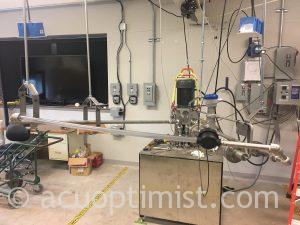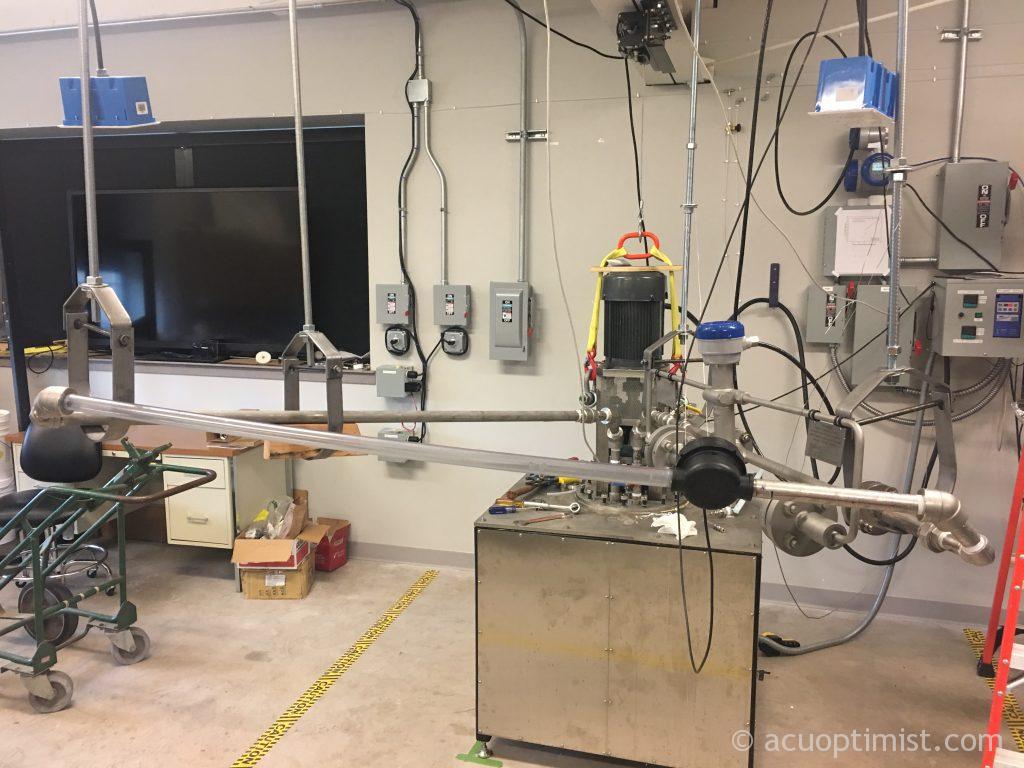The Department of Engineering and Physics launched its Nuclear Energy eXperimental Testing Lab, known as the NEXT Lab, over the summer and is now moving into phase two of the project.
The lab will advance research into Liquid Fueled Salt Reactors and educate students on nuclear power.
Dr. Rusty Towell, physics professor and director of the NEXT Lab, said the lab goes beyond research and allows students to participate in a real project focused on improving living standards on a global scale through the creation of a clean energy source, water purification and cancer-fighting isotopes.

The prototype molten salt reactor
“Students get a chance to take what they learn in a classroom and apply it to a real problem, and they are not just learning how to demonstrate something people have discovered hundreds of years ago,” Towell said. “We are saying, ‘These are new problems that people haven’t solved, but help us solve them.'”
Phase two of the project is comprised of testing various salts and figuring out how to build a prototype loop that can heat the salts, measure pressure and withstand corrosion.
Over the summer, physics graduate Reuben Byrd participated in building a barometer to measure the pressure inside of the loop.
“It was a really great opportunity to work closely with true experts in the field,” Byrd said. “NEXT is really cool, because it’s on campus and is more of a collaborative environment than some of the other labs I’ve worked in.”
The program was not limited to only students from the Department of Engineering and Physics. Students majoring in graphic design and computer science designed the NEXT Lab website and logo. Additionally, accounting students played a role in budgeting the money donated to the program.
“In any research, it’s never just engineers or just physicists; it’s always a collaboration. And getting to work with a small group that also has that is really cool,” Byrd said. “The chemistry people are working out what salt mixtures we need to have different detective points and getting what temperatures we need and the viscosity – lots of things that I wouldn’t know about – but it was really cool to see their work and to be somewhat involved in it.”
“The department this month landed $300,000 in support from the Development Corporation of Abilene, a city-funded group. The DCOA was formed to enhance economic development in the city of Abilene and donated to the project because of the high-value research jobs that will be created from the project and to show support for the positive global impact the molten salt reactors can have,” Towell said. More than $4 million has been donated to the lab.
“It’s amazing that all of these people see the value of this long-range vision of blessing the world,” Towell said.

